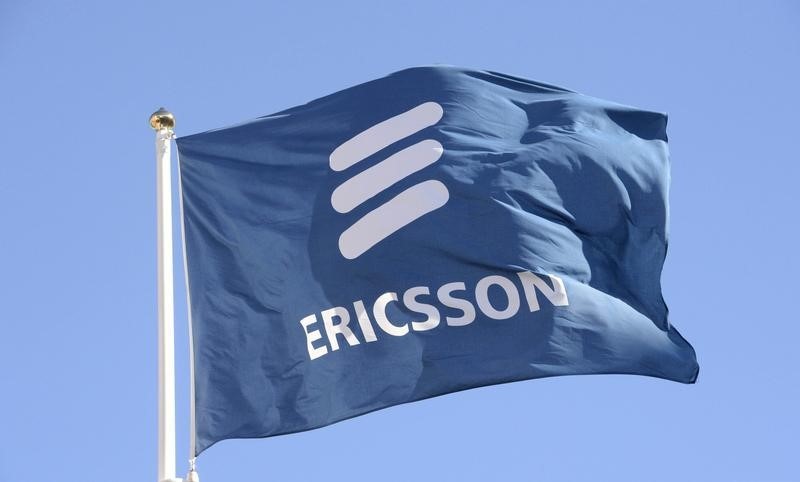By Sven Nordenstam and Olof Swahnberg
STOCKHOLM (Reuters) - Telecoms equipment maker Ericsson reported a surprise fall in profits on Thursday as infrastructure spending by mobile network operators in its key North American market remained sluggish and fierce competition pressured margins elsewhere.
While sales in China were up as build-outs of new networks there gather pace Ericsson's overall operating profits in the first quarter fell, weighed down by the lower margins in Asia.
Ericsson, the market leader in mobile networks, said fast-rising data traffic would mean a further need for upgrades of network infrastructure in North America, where the build-out of top clients AT&T and Verizon's 4G broadband networks is now largely complete.
"However, with current visibility, we anticipate the fast pace of 4G deployments in Mainland China to continue and the North American mobile broadband business to remain slow in the short term," the company said in a statement.
Ericsson's shares were down 8 percent at 101.60 Swedish crowns by 0913 GMT (1013 BST).
"It's mainly Networks that was weak, both on sales and income. That's not good at all as it is the most important segment," Redeye analyst Greger Johansson said.
"The main problem for Ericsson is that if you adjust for currency effects there is negative growth for systems, and the whole market doesn't grow."
Ericsson also pointed to lower revenues in the form of patent licensing fees because of a legal dispute with phonemaker Apple (NASDAQ:AAPL).
Operating profit in the quarter fell to 2.1 billion Swedish crowns (160 million pounds) from 2.6 billion in the same period last year, below the average forecast of 3.3 billion crowns given in a Reuters poll of analysts.
Revenue at its Networks unit, which accounts for just over half of sales, fell 9 percent on a like-for-like basis after a 7 percent drop in the fourth quarter.
Total sales in the first three months of 2015 rose by 13 percent to 53.5 billion crowns, in line with expectations and boosted by the stronger dollar. However, the company said like-for-like sales were down 6 percent.
The gross margin was 35.4 percent, short of the average forecast of 37.1 percent.
To mitigate price pressures and sluggish growth prospects in the mobile infrastructure market, where it competes with China's Huawei [HWT.UL] and Finland's Nokia (HEL:NOK1V), Ericsson said last year it was stepping up cost cutting, aiming to cut a further 9 billion crowns annually by 2017.
